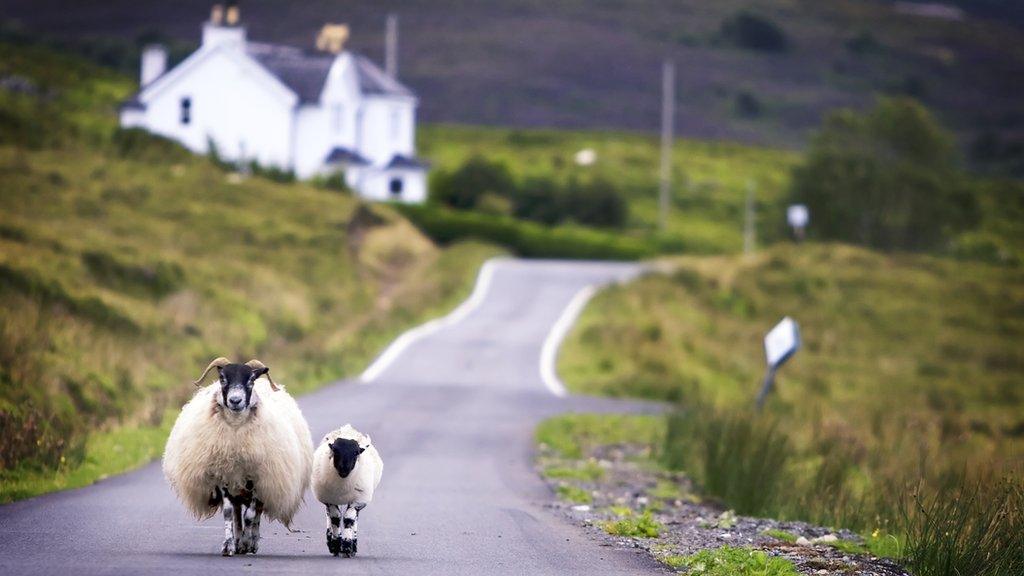Scottish farmers win battle over food subsidies
- Published
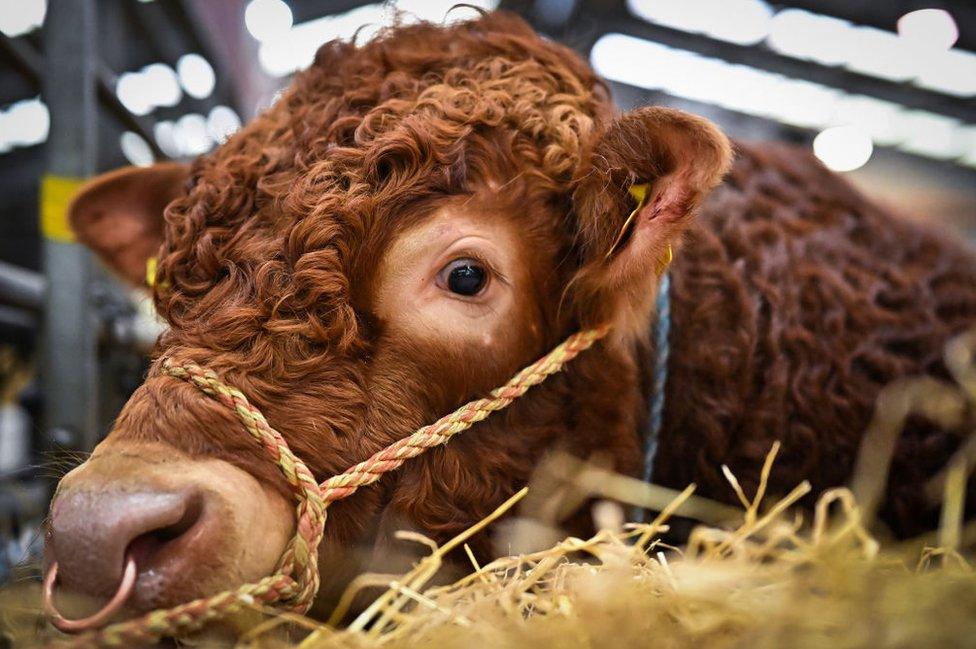
Scotland has a large proportion of land only suitable for livestock
Scotland's farmers will continue receiving most of their existing subsidies for growing food, the first minister has announced.
Humza Yousaf told NFU Scotland's spring conference in Glasgow that 70% of future support will be direct payments.
Green groups argue that the majority of the subsidies should be for tackling climate change and nature loss.
The farmers' union said that would lead some businesses to financial ruin and to agricultural land being abandoned.
Agriculture is a significant contributor to climate change, responsible for 19% of Scotland's planet-warming greenhouse gas emissions.
Environmental organisations have been lobbying for farm subsidies - worth £620m a year - to be used as a tool to cut those emissions.
In a long-awaited announcement at the conference, it was confirmed by First Minister Humza Yousaf that most subsidies will be earmarked for direct payments to help farmers produce food.
The remaining 30% of the cash will be for targeted measures like creating wetlands or restoring peatlands.
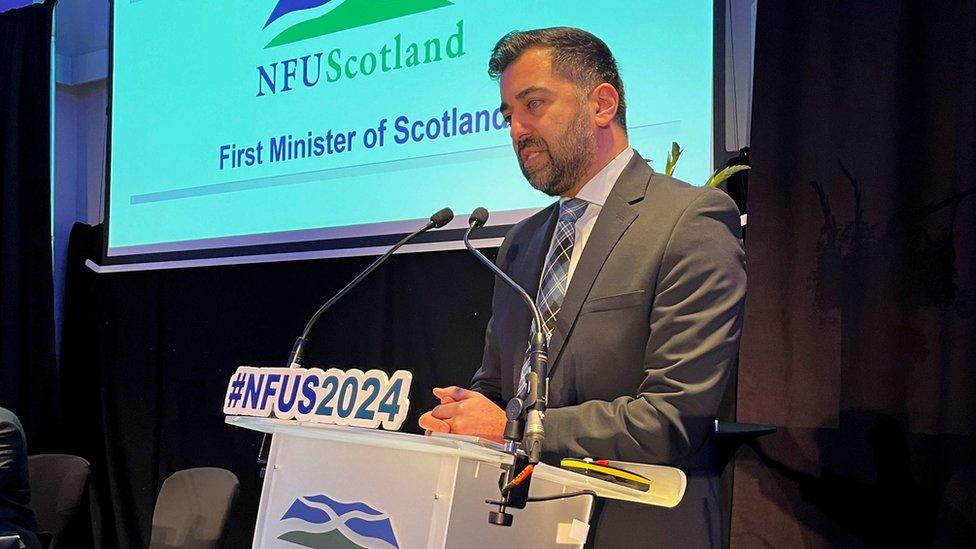
First Minister Humza Yousaf made the announcement at NFU Scotland's spring conference
The split in the funding is close to what exists at the moment, which will be a huge relief to most farmers.
Until 2027, 80% of the cash will be earmarked for direct support.
Mr Yousaf said the decision delivered on the promise not to create "cliff edges" but instead to transition to a new framework.
He added that farmers would be "expected to deliver more for nature and climate for that funding".
Scottish Environment Link, which represents more than 40 organisations, had been calling for a more radical approach.
It said the Scottish government's plans effectively maintained the status quo, with a relatively small pot of money left to help farmers take targeted action for the benefit of nature and the environment.
Working harder
The industry has been at a crossroads not of its own choosing.
For decades farm support has come from the EU under its Common Agricultural Policy which was created in 1962.
Then, it was meant to boost post-war food production while improving living conditions for farmers.
But the farming landscape has changed considerably over the past 60 years.
Brexit means the UK is now in charge of its own subsidies and there are some who think farmers should have to work much harder for the environment to receive the money.
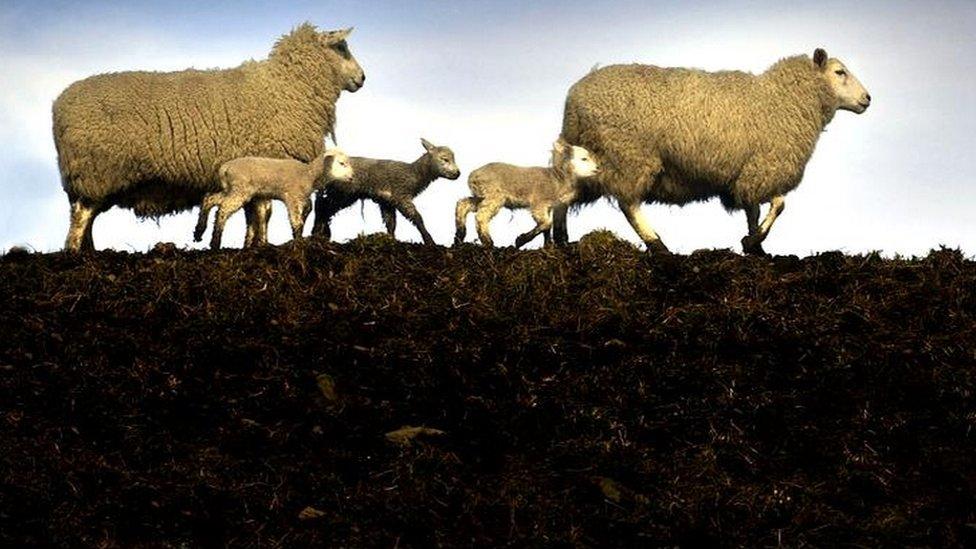
Sheep farming and crofting can be unprofitable without subsidies, farmers argue
England has already set off in a different direction with the ending - by 2027 - of all direct support for farmers.
As environment secretary back in 2018, Michael Gove set the direction of travel by declaring that farmers should receive public money "for public goods" with an emphasis on environmental improvements.
While the UK government declared "a new deal" for farmers, Scottish ministers pledged to keep the system as it is until at least 2026.
The sector in Scotland has successfully argued that direct support payments are needed because of the high prevalence here of uphill farming and crofting.
What is classed as "less favoured" land makes up about 85% of the farmed area in Scotland compared with less than 20% in England.
Scottish farmland is usually not the rich arable land you might find in Aberdeenshire or the Borders but mainly grassland suitable for less profitable sheep farming.
A new framework in Scotland was announced last year as part of the Agriculture and Rural Communities Bill which is going through parliament.
Farmers receiving basic subsidies will have to embrace sustainable and regenerative agriculture which keeps the soil fertile.
Many see this as just good farming practice and have already realised it is the best way to get the most out of the land.
Farming leaders say they are not opposed over time to subsidies shifting away from direct support towards targeted environmental projects.
But they say a "cliff edge" change would be a disaster.
- Published22 June 2023
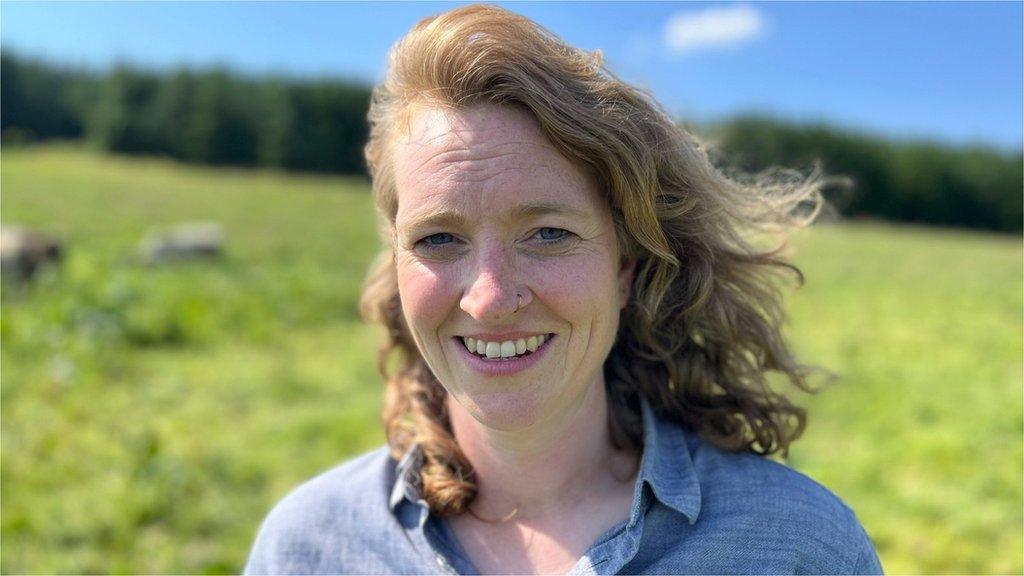
- Published12 May 2018
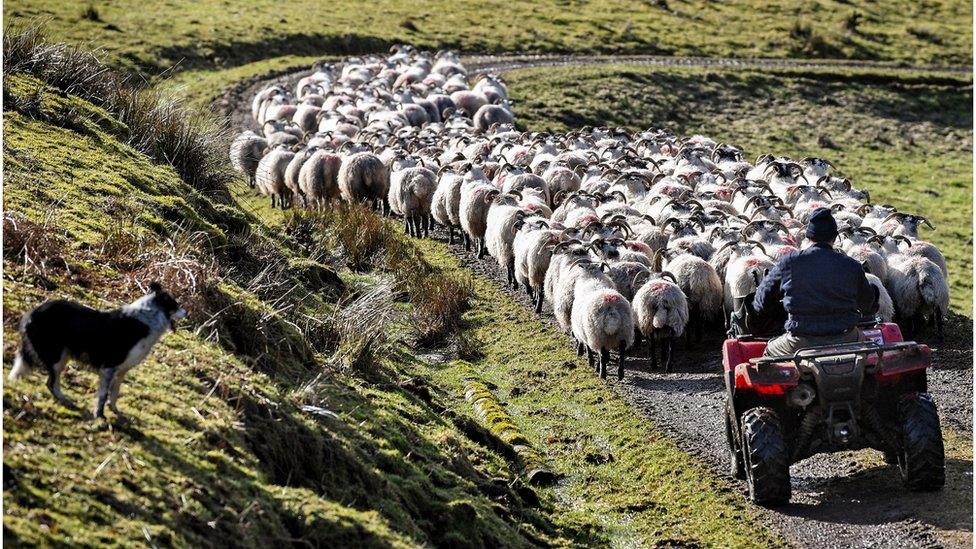
- Published7 March 2019
